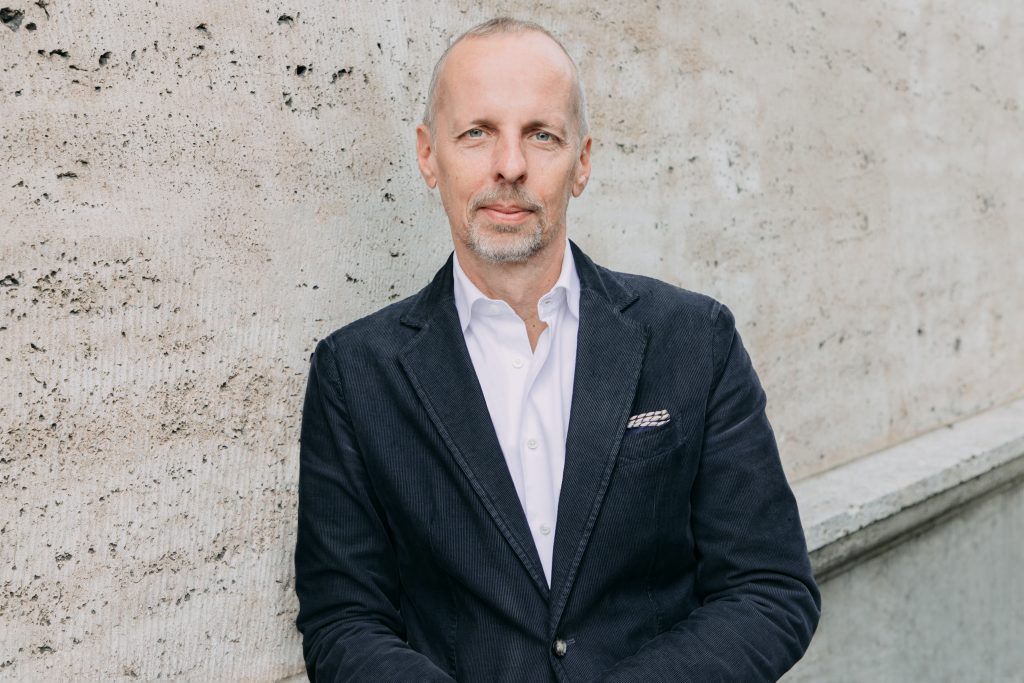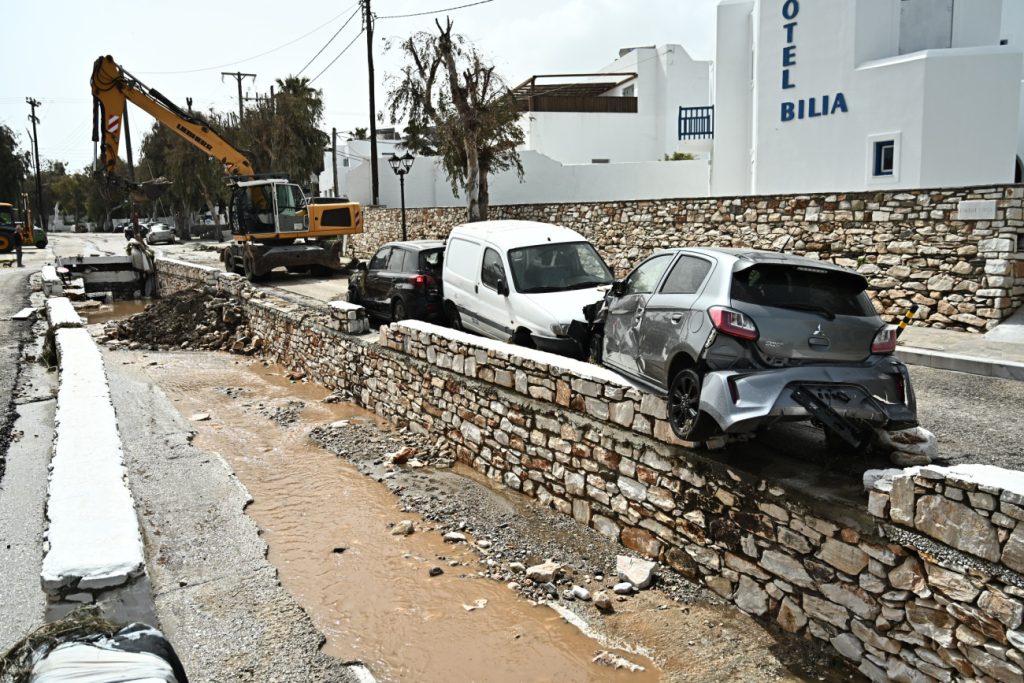In this thought-provoking interview with Martin Bialecki, Editor-in-chief of the journals Internationale Politik (IP) and Internationale Politik Quarterly (IPQ) , we explore the profound changes reshaping the global order. With the rise of China, Russia’s aggression in Ukraine, and the shifting role of the U.S. under Donald Trump’s leadership, the world is undergoing a transformation unlike anything we’ve seen in decades. As the traditional Western order crumbles, the future of democracy itself hangs in the balance. Our conversation delves into the dangers posed to democratic values, the rise of populism, and Europe’s struggle to maintain unity and power in an increasingly fractured geopolitical landscape. With sharp insights and bold predictions, this interview offers a candid look at the challenges we face and the difficult choices that lie ahead for both Europe and the world.

In recent years, we’ve witnessed significant shifts in global geopolitics, particularly with the rise of China, Russia’s actions in Ukraine, and the role of the U.S. in global affairs after the election of Donald Trump. Are we witnessing a radical change in the world order? And how dangerous is that for our democracies?
The Western-style order that has prevailed for decades since the Second World War has come to an end, and it will not return in this form. In view of the pace of change and the sometimes chaotic processes, it is difficult to say what will take its place; it will probably be several orders that exist side by side, partly overlapping and interpenetrating each other. What the overarching framework will be, and whether there will be one, is currently an open question. Spheres of influence are likely. The Pax Americana is over; nevertheless, the USA remains the strongest power in many fields (technology, etc.). Unfortunately, we are witnessing the end of the post-war agreement that force is not a legitimate means of exercising power in international relations under international law (unless war is waged). With his radical change of course on Ukraine and his attempt to normalize relations with Russia, Donald Trump is also pushing this boundary further and further. Democracies around the world are under considerable pressure and their existence is under threat in many places. Which path the USA will take here is currently open and will depend on the courts (and their acceptance!). The situation is very worrying.
Is the rule of law not important anymore?
Yes, it is. Most states want a rules-based coexistence if they are not just imposed rules from great powers or authoritarian states. Europeans in particular should insist on the rule of law with all their might; it is a core element of the West. Unfortunately, the Europeans have few means of power at their disposal; they can only advertise or convince, or link it to other areas. The fact that the USA no longer adheres to the rule of law and now wants to shape the world of states solely according to its own lust for power does not speak against the relevance of the rule of law. On the contrary.
You know US very well. Why did the American people vote for Trump? What has been missing in our liberal democracies?
The reasons for Trump’s election victory are well known and have been analyzed in detail, so let’s keep it brief: voters’ economic concerns (high inflation, rising cost of living), criticism of previous government policies, highly effective use of alternative media, mobilization of the conservative base, weaknesses of the opposing candidate. Liberal democracy has taken itself far too much for granted. It no longer promoted itself, it no longer defended itself, it did not stand up against nationalism and populism in time, it did not re-found its narrative, it shied away from difficult issues (migration), it placed too much emphasis on identity politics, it no longer listened to too many people, it isolated itself and felt comfortable in its blasé, and above all: it no longer had an independent, strong, positive program. It is not enough to say “We are not Trump” or “We are not Nazis”. What do I stand for? What do I have to offer? What are my answers to specific concerns? There are still a lot of gaps.
Are you worried about the rise of the Far Right Populist parties even in countries like Germany that for decades people had an aversion to these parties?
Yes, very much so. I would have thought my country in particular was more developed and smarter; the fact that so many young people vote far-right is remarkable. The Far Right populist wave has been building for years, for many different reasons between Italy and Slovakia, between France and the UK. They are united by the offer of supposedly simple answers. They pretend that they can reduce the complexity of these times and the interdependence of trade and politics. I think over 20 percent of the AfD in Germany is a very, very bad figure. It will only fall again if the new federal government does a very good job very quickly and very consistently.
What role do you think populism will play in shaping European foreign policy in the coming years?
This is a very broad question; the answer would have to be differentiated into individual countries and the result of elections and corresponding majorities, e.g. France, Italy, the UK, Poland, Hungary, etc. The bottom line, however, is that it will probably become even more difficult to formulate common European positions on foreign policy than it already is. National egoisms will increase. It will therefore be necessary to form more coalitions of the willing and no longer take individual countries such as Hungary, which are de facto opponents of the European idea, into consideration.
Given the ongoing war in Ukraine, how do you foresee Europe’s response to the war in the long term. Is Europe at the end of the day unprepared to deal with that without the help of the US?
Europe has failed to prepare for this situation for several years. This is a very serious mistake, hopefully, it is not a historical omission. Europe (and the USA) could and, in my opinion, should have helped Ukraine to defeat Russia much earlier. That would have been possible, but Germany also put the brakes on significantly. The current situation strikes at the heart of Europe. The protective power that has protected it for decades is withdrawing, in what form and whether cooperation is still possible remains to be seen. It will take up to a decade to build up our own protection in the first place. This will be a huge, unprecedented task for Europe. Europe has hardly any means of its own to assert itself in the confrontation between the great powers. It is still not too late to support Ukraine with all our might in order to improve its position in negotiations. In view of Russia’s criminal war of aggression against Ukraine, however, Europe has hardly any other leverage than to release and use frozen assets. Europe cannot provide the scale of peacekeeping troops on its own – IF there is ever a ceasefire or even peace, but that will probably take longer. We are dependent on what others do and decide.
And will do you believe the US strike a deal with Russia without the involvement of Ukraine or EU?
As Europeans, we are currently and in the long term dependent on what others do and decide. We can demand to sit at the table, but we haven’t done very much about it. You can think this European seat is right for geographical, financial, historical, or moral reasons, but we don’t have very strong arguments. Of course, this does not apply to Ukraine. Ukraine must not be decided over the heads of the Ukrainians. At the moment, it looks as if this is exactly what will happen, but we will have to wait and see; there is still a lot of movement within the US government. However, the Europeans should stop complaining and do everything they can. And that is not nothing! The first priority must be to radically ramp up defense spending and support Ukraine as much as possible. We are standing on a precipice.
Martin Bialecki will attend and participate in the 10th Delphi Economic Forum. The forum will take place in the city of Delphi from April 9th to 12th, 2025.



